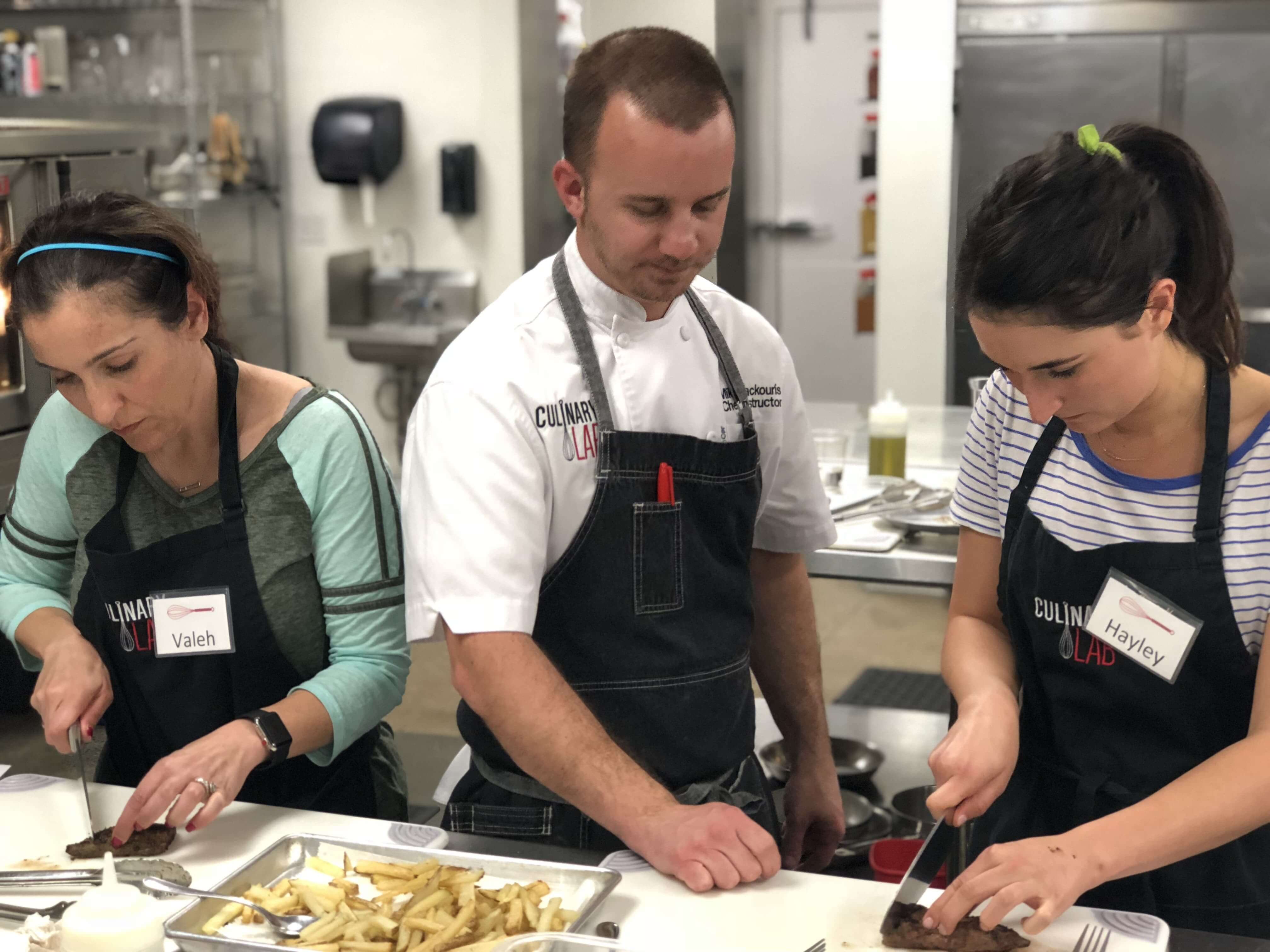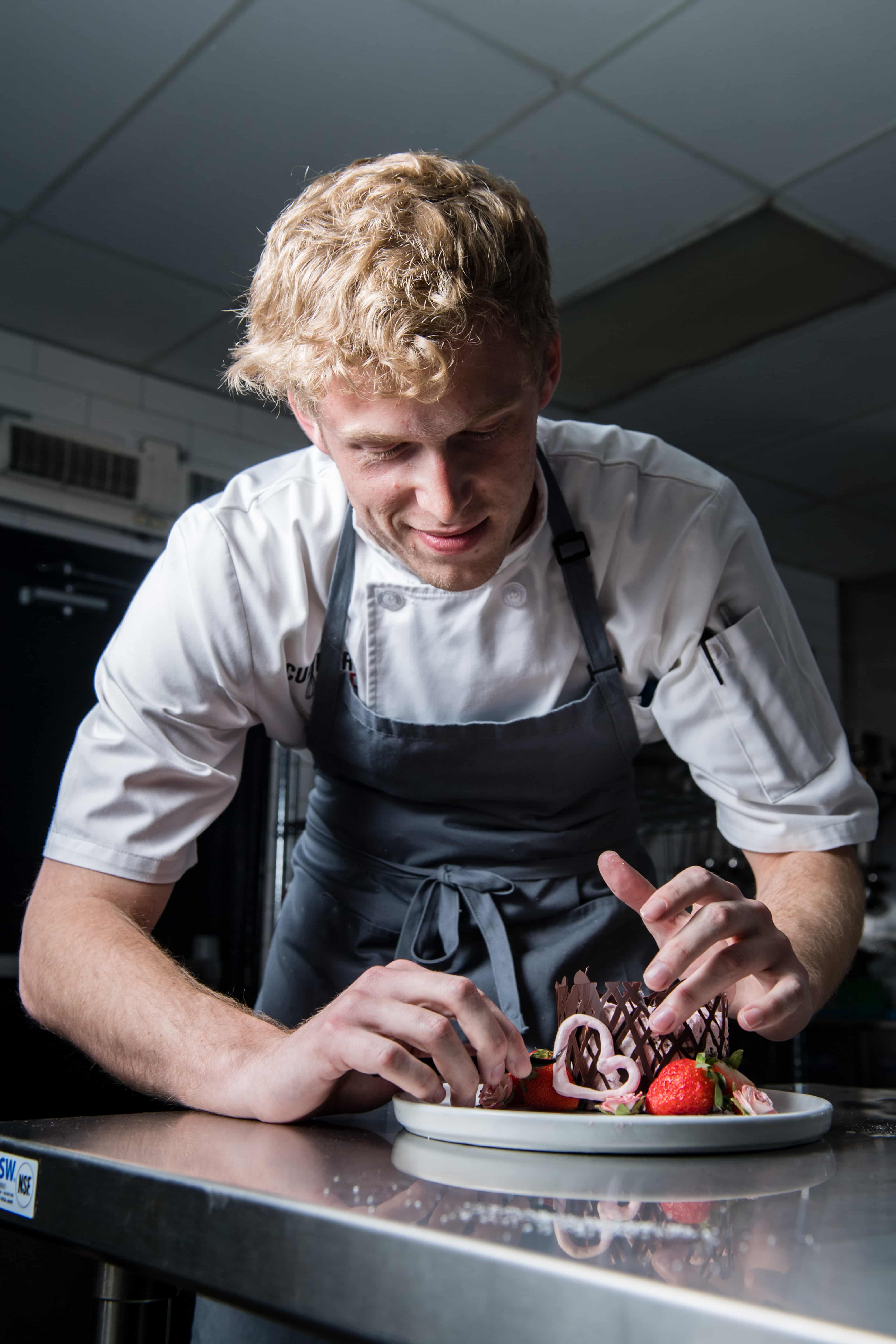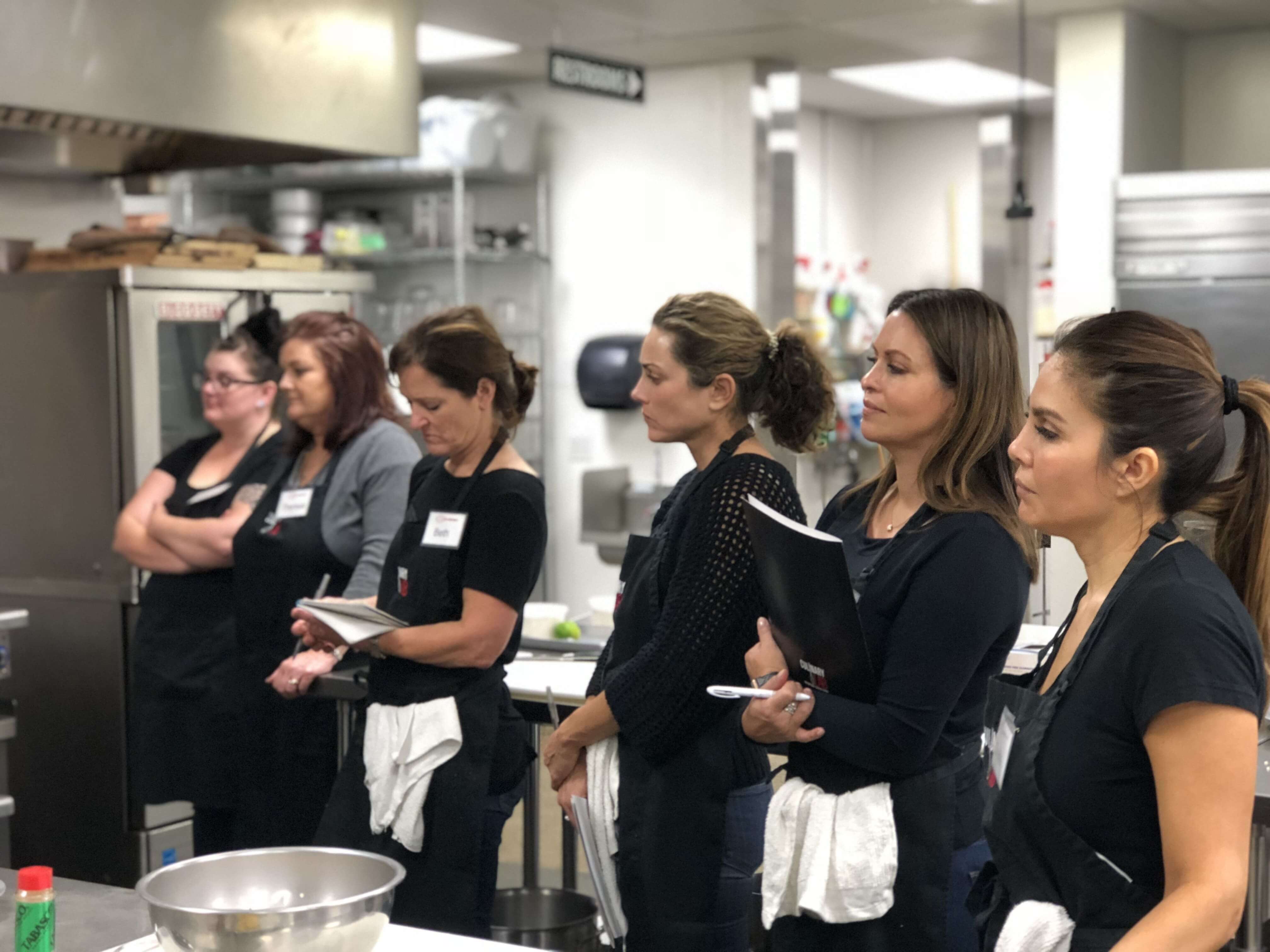As an aspiring chef, I wanted to know how the staff is organized. To get a better understanding of their hierarchy or “kitchen brigade” , I interviewed Executive Chef Andrew Litherland. Here’s his general overview of his staff, depicting the hierarchy of a large professional kitchen, starting from the bottom.
Typical Kitchen Hierarchy of a Professional Hotel Restaurant

Is culinary school right for you? Pros and Cons of Being a Chef

Looking to break into the food industry and wondering if culinary school is the ticket in? It all depends on the individual, say the chefs we spoke to.Culinary school can be a great way for some to launch a career in the food industry, but there are far too many factors making it difficult to know for sure if culinary school is a right fit for you.Students with no professional experience might find it necessary to achieve basic skills before starting their journey into a fast-paced kitchen environment.For others, suffering through what can be a brutal, trial-by-fire restaurant atmosphere with no previous culinary training is still the right — and cheaper — way to go.Either way, the decision to attend culinary school should be a personal choice that benefits you, and not be based on impressing a hiring manager or chef.
Going For a Culinary Apprenticeship? What Chefs Look For in a New Hire

So your chopping skills are first rate and your braised beef is to die for. Does this make you a prime target for a job in a professional kitchen? Not really.According to chefs we spoke to about what they want in a new hire, the qualities they look for have little do with cooking.They assume you know how to handle a knife, and they can teach you how to cook their way. What they really want is not unlike what most hiring managers want: A hard worker with a good attitude.We’ve peeled away five attributes that chefs look for with their candidates.










